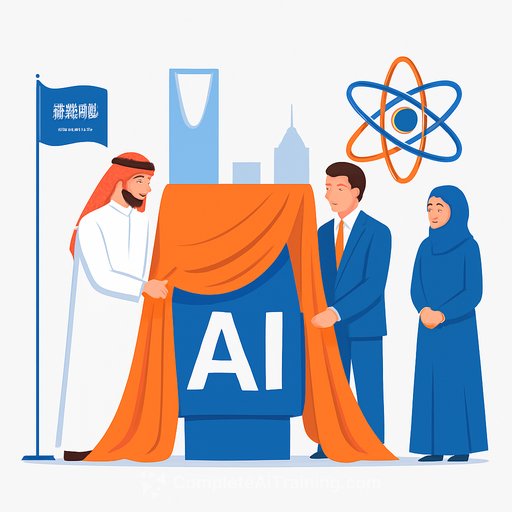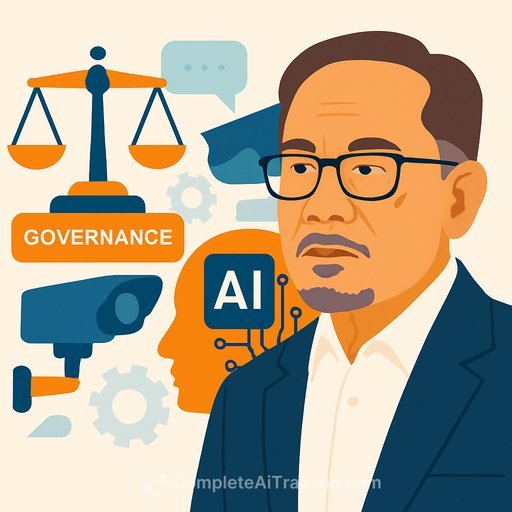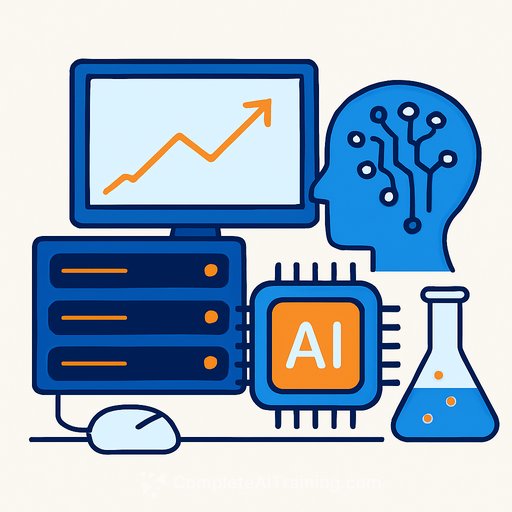QRS Develops AI Platform to Streamline Air Force Industry Connections
Quantum Research Sciences (QRS), a software company based in Indiana, is building the ACID-R platform for the U.S. Air Force to improve access to commercial capabilities and speed up defense modernization. This AI-powered system aims to simplify how the Air Force evaluates vendor proposals by automating the review process and highlighting missing information.
The project is a collaboration with Purdue University's Rosen Center for Advanced Computing (RCAC), where Laura Theademan, director of RCAC Center Operations and Visualization, emphasized the long-term partnership between QRS and RCAC. Daniel Madren, senior research development administrator at RCAC, leads the technical efforts alongside Air Force experts. The platform benefits from QRS’s background in quantum software development, including work with Andreas Jung, a Purdue physics professor, and the Jung Research Group.
AI-Powered Platform for Defense Modernization
The ACID-R (Automated Commercial Industry Data-Repository) platform is designed to transform how the Air Force accesses and assesses commercial and military-focused products and services. Traditionally, technology proposals arrive as lengthy PDFs requiring manual review, slowing decision-making.
ACID-R uses artificial intelligence to analyze capability statements submitted by vendors. It extracts relevant data and automatically flags missing information, reducing the time and effort needed to evaluate proposals. This approach aims to minimize errors often caused by AI-generated content by applying strict validation rules.
This collaboration taps into RCAC’s expertise in high-performance computing and AI innovation. The project involves a diverse team of AI scientists, software engineers, and visualization specialists working closely with Air Force personnel. QRS CEO Ethan Krimins highlights the company’s mission to address practical defense challenges at the intersection of quantum computing and national security.
Collaboration Between Industry and Academia
Purdue University plays a key role in this initiative. As one of the top public research universities in the U.S., Purdue supports innovation through networks like Purdue Innovates, which helps commercialize intellectual property and supports startup creation.
The ACID-R platform will enable the Air Force to efficiently search, filter, and analyze thousands of vendor proposals. This capability will improve sustainment and logistics operations by accelerating access to reliable commercial data.
QRS’s award of this contract reflects their strong expertise in artificial intelligence and quantum computing, reinforced by their partnership with Purdue’s Rosen Center for Advanced Computing.
Key Personnel and Institutional Affiliations
- Quantum Research Sciences (QRS): Indiana-based software company specializing in AI and quantum software development.
- Rosen Center for Advanced Computing (RCAC) at Purdue University: National leader in high-performance computing and AI innovation.
- Laura Theademan: Director of RCAC Center Operations and Visualization, highlighting the decade-long QRS-RCAC partnership.
- Daniel Madren: Senior research development administrator at RCAC, leading technical development efforts.
- Andreas Jung: Purdue professor of physics and astronomy, collaborating on quantum software research.
- AJ Wildridge: Doctoral researcher with the Jung Research Group contributing to the project.
- Ethan Krimins: CEO of QRS, focused on solving defense challenges at the intersection of quantum computing and national security.
For professionals interested in AI advancements in defense and research applications, exploring quality AI training resources can provide valuable insight and skills. Visit Complete AI Training's latest courses for relevant learning paths.
Your membership also unlocks:





